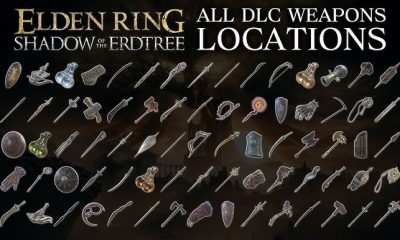Cars
An Ultimate Automotive Guide to Consider When Buying Your First Car

As you plan on acquiring your first car, there are many questions that will linger in your mind. For instance, you will wonder which is the best car model to start with depending on your budget. There are many factors that you should consider, and they can be overwhelming.
As you acquire your first car, consider the following tips:
1. Determine Your Needs and Wants
After determining the amount you are willing to spend on your first car, you should now consider your wants and needs. For instance, a single person will not opt for the same car as someone who has a family.
Compile a list about safety features, vehicle size, and fuel economy. The list helps to determine the type of vehicle that suits you, depending on your needs. You should also consider factors such as convenience, technology, and style. Always keep the list in mind as you look into different car models.
2. Consider Your Budget and the Trade-In Value
Before you conduct research on different car models, you should first determine the amount of money you are willing to spend on your first car. How much money have you saved? If you are applying for a loan, what are the interest rates on auto loans? Consider the licensing costs and fees you have to pay when applying for a loan.
You can check your bank statement and factor in your monthly bills to determine the amount of money you are willing to spend on your first car. The trade-in value also matters.
When you visit a car dealership, and you have a set price in mind, the major issue is that the salespeople can pressure you into purchasing a more expensive car. Never give in to that pressure. After purchasing a car, you should consider additional expenses such as sales tax, car insurance, and registration fee.
3. Consider the Ongoing Costs
After finding a vehicle that you love, you should consider the ongoing costs associated with owning a car. For instance, car models whose car parts will cost more, which means the maintenance costs may drain you financially. Other costs include the cost of fuel. Ensure that you can afford each of these costs before you can sign the paperwork to finalize the sales process.
4. Research the Best Models and Brands
After understanding what you need, you can purchase a particular car model and brand that fits into your expectations. You can compare different listings. Check reviews posted online. The safety ratings and lifespan of the car also matter.
Despite conducting research online, you can liaise with an expert who will offer insight into different car models. Visit the local dealership and request a test drive. Consider the car’s comfort, acceleration, and handling. You can also ask questions about the functionality and engineering of the vehicle.
5. Confirm Your Credit Score
Before you apply for an auto loan, you should start by checking your credit score. A good credit score will ensure that you can get a loan that has a low-interest rate. If your credit history is not good, you should make sure that you have shaped it well before applying for a loan.
6. Mechanic Inspection
After finding a car that suits your taste and preferences, you should contact a trusted mechanic who will inspect the vehicle. The mechanic will determine whether the car has some underlying issues which may become problematic in the future. The service is not free; however, it will save you from a lot of trouble in the future. For reliable Orlando BMW Repair Services that you can trust, consult Dealer Service Alternative
7. Check the Car’s History
If you’re purchasing a used car, you should check the history of the vehicle. Ensure that you have gathered enough information about the used car from the person who currently owns the vehicle.
There are paid services that will grant you access to the information that you need. You’ll get to know whether the car has ever been involved in an accident or whether there are any claims on the car. You need the vehicle identification number to ensure you can access the history report of the car and other types of information that you need.
Additional Information
Other factors that you should consider include checking the condition of the tires when acquiring a used car. The date when the tires were manufactured matters. The tires should also be evenly worn out.
The dimensions of the tires should also align with the measurements that were issued by the manufacturer. When the tires are not well aligned, there will be uneven treads, and one of the tires will wear out faster as compared to the others, which means the suspension and steering have an issue.
Conclusion
For a used car, the mileage matters since it lets you learn about how the vehicle was used. The mechanical components of a vehicle that has a high mileage have experienced more wear and tear.
For a used car, the mileage matters since it lets you learn about how the vehicle was used. The mechanical components of a vehicle that has a high mileage have experienced more wear and tear.


















